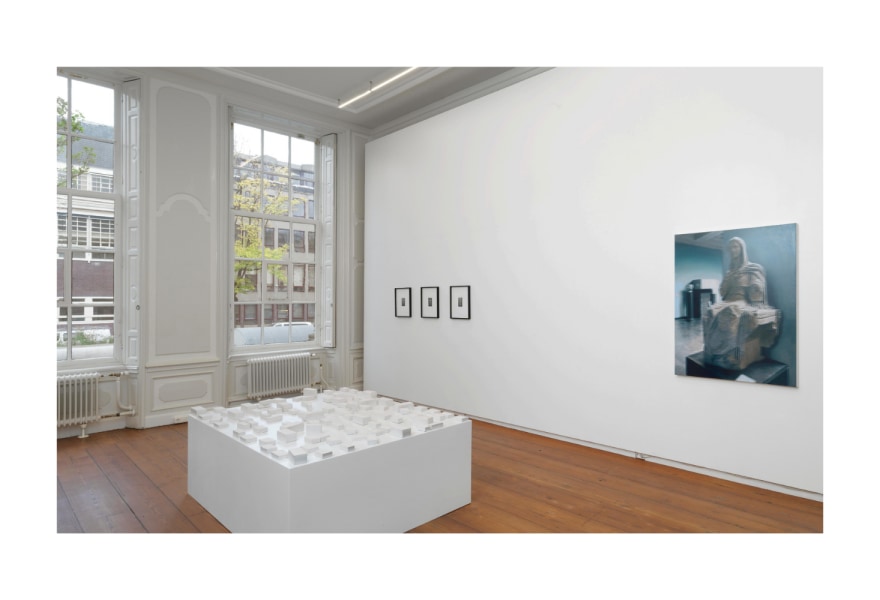17 december 2024, Flor Linckens
Last chance: Everything Shakes at Upstream Gallery
Until 21 December 2024, Upstream Gallery in Amsterdam presents the solo exhibition 'Everything Shakes' by British-Dutch artist David Haines. In a time marked by instability and chaos, Haines explores the tension between the personal and the political, the material and the ephemeral, inviting viewers to embrace the uncertainties of our contemporary existence.
Haines is renowned for his technical virtuosity and multifaceted practice, which bridges traditional and contemporary visual languages. His body of work includes hyper-realistic pencil drawings, paintings, sculptures and videos that examine themes such as identity, instability and digital culture. He draws inspiration from subjects like (homo)erotica, the overwhelming imagery that mass media provides, fetishism, (young) masculinity, cruelty (including conversion therapy practices within Evangelical churches in the US), street culture, consumerism, mythology, online subcultures and the ways we behave and present ourselves online.
At the heart of this exhibition lies a series that consists of 400 porcelain-cast pill strips (in total). Rooted in Haines’ personal experiences with caregiving, these works depict both his and his mother’s dependence on medication, forming a dual portrait of care and vulnerability. The artist was drawn to the geometric simplicity of the strips, while the historical rarity of porcelain references the pandemic period, when even everyday medicines became temporarily scarce. Subtle imperfections — tears, folds, and dents — within the plaster casts underscore the fragility of the human body, immortalising objects that would otherwise be discarded. Haines also captures the pill strips in a series of hyper-realistic pencil drawings.
In addition to these sculptural works and works on paper, Haines explores in a series of dark paintings how digital reflections shape our understanding of image, space, and identity — both figuratively and literally, through the dark mirrors of our digital devices. He presents monochromatic floral still lifes — a reference to our problematic colonial trade history — whose true forms reveal themselves only gradually. A drawing of the Michelangelo Room at the Pushkin Museum in Moscow critiques the stark contrast between Michelangelo’s semi-homoerotic art and the country’s anti-LGBTQIA+ policies. In 'Composition (Demeter of Knidos in the British Museum)', the classical, static statue of the Greek goddess Demeter appears to vibrate in a fragmented form. This visual instability raises questions about the repatriation of museum artefacts while simultaneously reflecting on contemporary concerns about the fragility of the natural world and humanity’s role in that.
David Haines was born in 1969 in Nottingham and studied at the Camberwell School of Art in London, followed by a residency at the Rijksakademie van Beeldende Kunsten in Amsterdam. In 2012, he was awarded the Jeanne Oosting Prize. Haines’ work has been exhibited at the Stedelijk Museum, Turner Contemporary, The British Museum, Fruitmarket Gallery, The National Museum of Contemporary Art in Athens, Eye Filmmuseum, the Centraal Museum, Kunsthal, Art Basel, IDFA and the 11th Istanbul Biennale. His work has been included in the collections of the British Museum, Teylers Museum, the Zabludowicz Collection, Clifford Chance, KRC/Chadha Foundation, Andaz Hotel/The Mind’s Eye Collection, and private collections such as those of Takashi Murakami and dutch author Adriaan van Dis.


